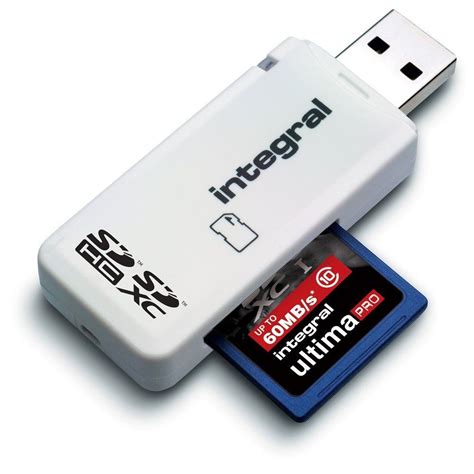I've tried running running a disk check, then I got a complain
pi@raspberrypi ~ $ /sbin/fsck
fsck from util-linux 2.20.1
e2fsck 1.42.5 (29-Jul-2012)
/dev/mmcblk0p2 is mounted.
WARNING!!! The filesystem is mounted. If you continue you ***WILL***
cause ***SEVERE*** filesystem damage.
Do you really want to continue<n>? no
check aborted.
pi@raspberrypi ~ $ umount -l /dev/mmcblk0p2
umount: it seems /dev/mmcblk0p2 is mounted multiple times
Do I have to umount, what are the steps for a safe umount?
Update:
pi@raspberrypi ~ $ mount
/dev/root on / type ext4 (rw,noatime,nodiratime,user_xattr,barrier=1,data=ordered)
devtmpfs on /dev type devtmpfs (rw,relatime,size=118872k,nr_inodes=29718,mode=755)
tmpfs on /run type tmpfs (rw,nosuid,noexec,relatime,size=23788k,mode=755)
tmpfs on /run/lock type tmpfs (rw,nosuid,nodev,noexec,relatime,size=5120k)
proc on /proc type proc (rw,nosuid,nodev,noexec,relatime)
sysfs on /sys type sysfs (rw,nosuid,nodev,noexec,relatime)
tmpfs on /run/shm type tmpfs (rw,nosuid,nodev,noexec,relatime,size=47560k)
devpts on /dev/pts type devpts (rw,nosuid,noexec,relatime,gid=5,mode=620)
/dev/mmcblk0p1 on /boot type vfat (rw,relatime,fmask=0022,dmask=0022,codepage=cp437,iocharset=ascii,shortname=mixed,errors=remount-ro)
pi@raspberrypi ~ $ cat /etc/mtab
rootfs / rootfs rw 0 0
/dev/root / ext4 rw,noatime,nodiratime,user_xattr,barrier=1,data=ordered 0 0
devtmpfs /dev devtmpfs rw,relatime,size=118872k,nr_inodes=29718,mode=755 0 0
tmpfs /run tmpfs rw,nosuid,noexec,relatime,size=23788k,mode=755 0 0
tmpfs /run/lock tmpfs rw,nosuid,nodev,noexec,relatime,size=5120k 0 0
proc /proc proc rw,nosuid,nodev,noexec,relatime 0 0
sysfs /sys sysfs rw,nosuid,nodev,noexec,relatime 0 0
tmpfs /run/shm tmpfs rw,nosuid,nodev,noexec,relatime,size=47560k 0 0
devpts /dev/pts devpts rw,nosuid,noexec,relatime,gid=5,mode=620 0 0
/dev/mmcblk0p1 /boot vfat rw,relatime,fmask=0022,dmask=0022,codepage=cp437,iocharset=ascii,shortname=mixed,errors=remount-ro 0 0
pi@raspberrypi ~ $ cat /etc/fstab
proc /proc proc defaults 0 0
/dev/mmcblk0p1 /boot vfat defaults 0 2
/dev/mmcblk0p2 / ext4 defaults,noatime,nodiratime,nodiratime 0 1
# a swapfile is not a swap partition, so no using swapon|off from here on, use dphys-swapfile swap[on|off] for that
I also see this in dmesg:
[ 3.054577] smsc95xx 1-1.1:1.0: eth0: register 'smsc95xx' at usb-bcm2708_usb-1.1, smsc95xx USB 2.0 Ethernet, b8:27:eb:3a:ff:c1
[ 4.592609] EXT4-fs (mmcblk0p2): ext4_orphan_cleanup: deleting unreferenced inode 47900
[ 4.611794] EXT4-fs (mmcblk0p2): ext4_orphan_cleanup: deleting unreferenced inode 31567
[ 4.630805] EXT4-fs (mmcblk0p2): ext4_orphan_cleanup: deleting unreferenced inode 23732
[ 4.647041] EXT4-fs (mmcblk0p2): ext4_orphan_cleanup: deleting unreferenced inode 4871
[ 4.662074] EXT4-fs (mmcblk0p2): ext4_orphan_cleanup: deleting unreferenced inode 4653
[ 4.662256] EXT4-fs (mmcblk0p2): ext4_orphan_cleanup: deleting unreferenced inode 4514
[ 4.662344] EXT4-fs (mmcblk0p2): ext4_orphan_cleanup: deleting unreferenced inode 4465
[ 4.677977] EXT4-fs (mmcblk0p2): ext4_orphan_cleanup: deleting unreferenced inode 3989
[ 4.678142] EXT4-fs (mmcblk0p2): 8 orphan inodes deleted
[ 4.685881] EXT4-fs (mmcblk0p2): recovery complete
[ 8.631347] EXT4-fs (mmcblk0p2): mounted filesystem with ordered data mode. Opts: (null)
[ 8.644244] VFS: Mounted root (ext4 filesystem) on device 179:2.
[ 8.654677] devtmpfs: mounted
[ 8.661103] Freeing init memory: 124K
[ 10.414514] udevd[139]: starting version 175
[ 21.263308] EXT4-fs (mmcblk0p2): re-mounted. Opts: (null)
[ 21.967590] EXT4-fs (mmcblk0p2): re-mounted. Opts: (null)
[ 22.849536] bcm2835 ALSA card created!
[ 22.855703] bcm2835 ALSA chip created!
[ 22.875121] bcm2835 ALSA chip created!
[ 22.885884] bcm2835 ALSA chip created!
[ 22.894074] bcm2835 ALSA chip created!
[ 22.902271] bcm2835 ALSA chip created!
[ 22.910319] bcm2835 ALSA chip created!
[ 22.918129] bcm2835 ALSA chip created!

